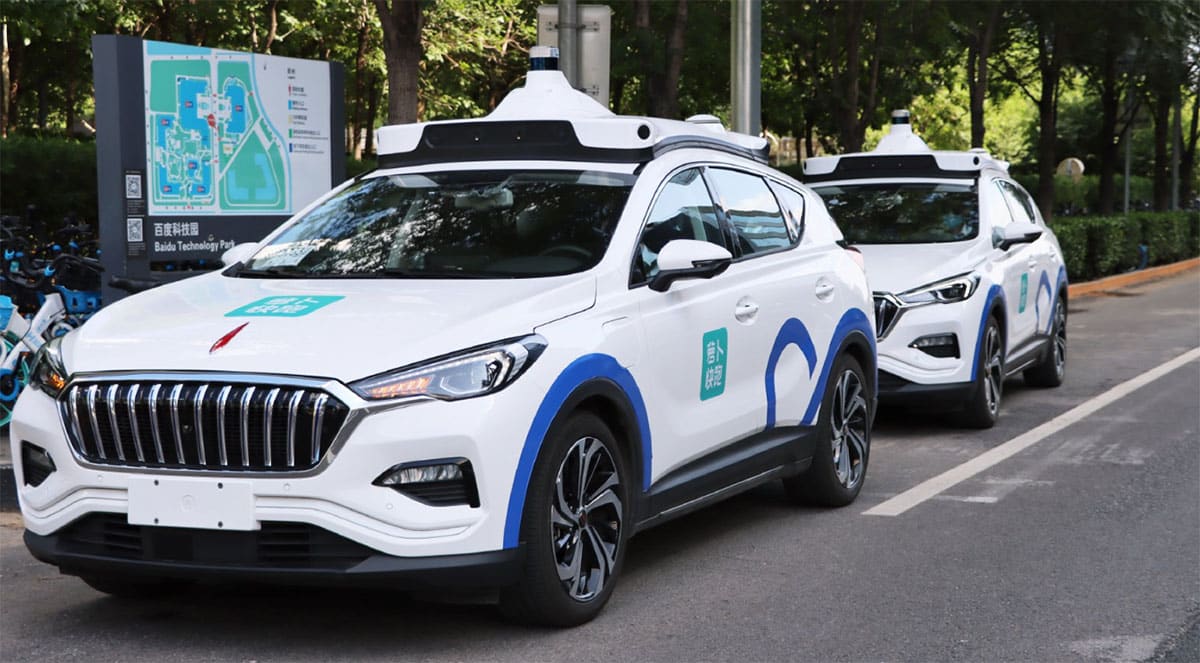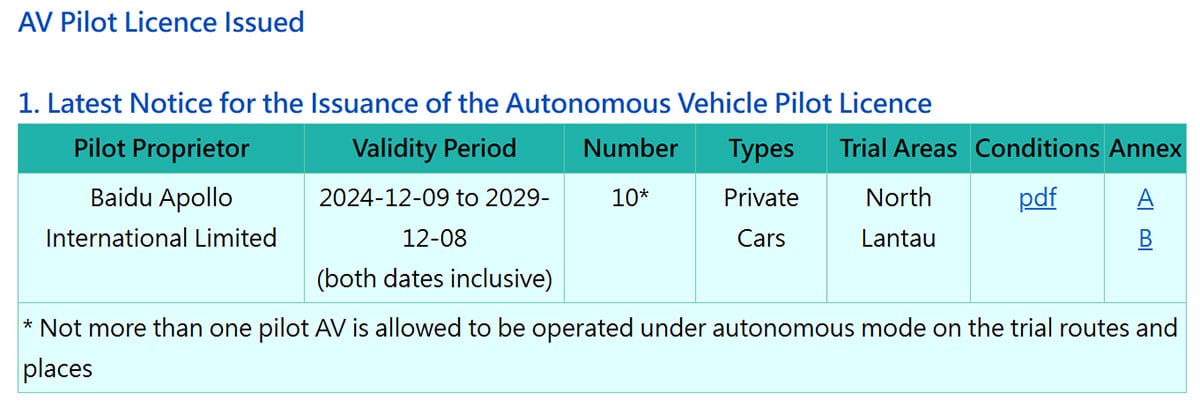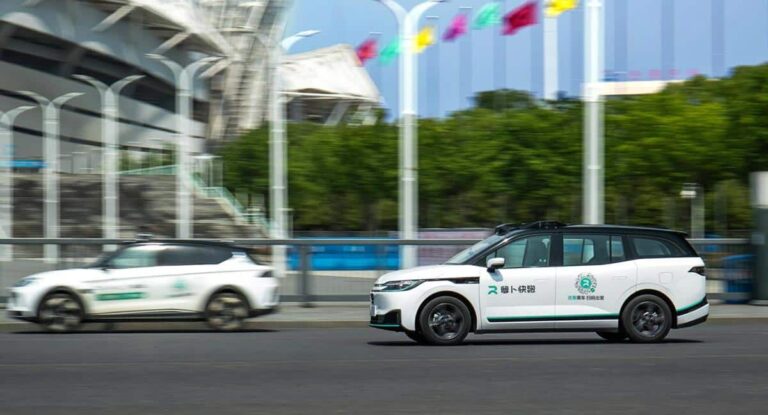Baidu has been granted license to put 10 Apollo Go robotaxis into trial operation in Hong Kong, the first time it has been permitted to test robotaxi outside of the Chinese mainland.

Baidu's robotaxi service Apollo Go has been granted permission to test in Hong Kong, expanding its operations outside the Chinese mainland.
The Hong Kong Transport Department announced yesterday that the first pilot license for autonomous vehicle has been issued, which allows the applicant to conduct a trial of 10 robotaxis on North Lantau.
The statement did not mention the name of the applicant, though according to another document, it is Baidu Apollo International Ltd, the operator of the Apollo Go service platform.
The license is valid from December 9, 2024, to December 8, 2029, and in the first phase, only one autonomous private car can be operated at a time on designated roads.
During the trial period, a backup operator stationed on the vehicle will take over control of the vehicle as and when required.
“Apollo Go looks forward to bringing the benefit of AI and autonomous driving technology to more countries and regions, providing more users with green, safe and comfortable autonomous ride-hailing services. With that in mind, we have started to expand our business globally,” a Baidu spokesperson told CnEVPost.
“Not only is this the first pilot license for autonomous vehicle granted in Hong Kong, it is also the first right-hand drive autonomous driving test license obtained by Apollo Go. This marks an important milestone in our journey towards globalization,” the spokesperson said.
The Hong Kong government has been promoting autonomous vehicles since 2017, but it wasn't until the introduction of new regulatory legislation in March this year that wider trials of such vehicles on public roads were allowed.
Hong Kong's new autonomous vehicles legislation and regulatory regime comes into effect on March 1, 2024, providing a flexible regulatory framework for robotaxi, according to a statement yesterday.
The Hong Kong government launched the $1 billion Smart Traffic Fund in 2021 to provide funding support to local organizations or enterprises for conducting research and application on vehicle-related innovation and technology. So far, 12 approved projects have been related to autonomous vehicles.
This is the first pilot license issued by the Hong Kong government since the implementation of the new regulatory regime, and the first time Baidu has been granted autonomous vehicle test permit outside the Chinese mainland.
Baidu submitted its application for autonomous vehicle test license last month, and Apollo Go is expected to undergo its first phase of testing at the airport by the end of this year at the earliest, Hong Kong media outlet TVB said in a November 25 report.
Baidu, which ventured into self-driving technology in 2013, was one of the first Chinese companies to enter the field.
As of now, Apollo Go is available in more than 10 cities in the Chinese mainland.
On May 15 this year, Baidu unveiled its sixth-generation robotaxi, costing 200,000 yuan ($27,610), a 60 percent drop compared to the previous generation.
These vehicles would join the robotaxi fleet on Apollo Go, which by the end of 2024 plans to deploy 1,000 sixth-generation robotaxis in Wuhan, Hubei province, Baidu said in May.
($1 = RMB 7.2429)

